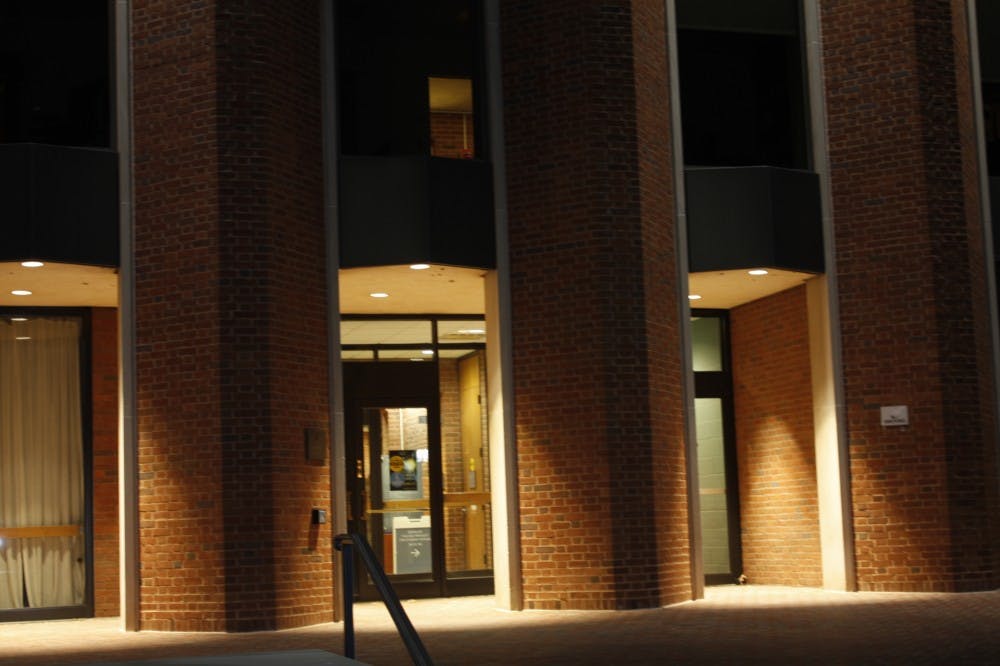Provost Sunil Kumar and Interim Vice Provost for Institutional Equity Joy Gaslevic emailed the student body on Tuesday with the Office of Institutional Equity’s (OIE) second annual report and the results of the recent Campus Climate Survey.
Although the University has commissioned prior climate surveys, this survey was produced in collaboration with the Association of American Universities (AAU) so that the data collected on incidents of sexual misconduct at the University could be compared against the data produced by 32 other participating college campuses. The University hired Westat, a Maryland-based research firm, to administer the survey and compile the report.
About one third of Hopkins undergraduates and one quarter of Hopkins graduate students responded to the survey.
The recently released OIE annual report quantifies the reports that OIE received of sexual misconduct this year, along with the University’s response.
Gaslevic summarized her office’s main takeaways from these two reports in an email to The News-Letter.
“A comparison of the 2017 and 2018 OIE reports shows significant growth in reports brought to OIE — a trend that is mirrored among our peers as evidenced by the AAU survey aggregate data — that we believe is driven by greater awareness of sexual misconduct and discrimination and of the resources available to report it,” she wrote. “However, these results show we need to do more to educate students about our policies related to sexual misconduct and the resources available for those involved in sexual misconduct matters.”
The Co-Directors of the Sexual Assault Resource Unit (SARU), seniors Deeya Bhattacharya and Reah Vasilakopoulos, also emphasized the importance of increased education and transparency in an email to The News-Letter.
“Survivors often do not know what to expect from such a long, complicated process. If OIE and the administration can be more transparent about how decisions are made, survivors can feel even more empowered and comfortable if/when they choose to go through that process,“ they wrote in an email to The News-Letter.
The climate survey’s results noted that only about 55 percent of Hopkins undergraduate students found it very or extremely likely that campus officials would take a report of sexual assault or misconduct seriously.
Kumar pointed to this statistic as an area for improvement in a letter addressed to faculty, students and staff.
“We were dismayed to see that only 55% of respondents believe it would be ‘very’ or ‘extremely’ likely that campus officials would take a report of a sexual assault or misconduct seriously,“ Kumar wrote.
Bhattacharya and Vasilakopoulos did not find this statistic shocking.
“We were unsurprised that only 55% of JHU students feel it is ‘very’ or ‘extremely’ likely that campus officials would take a report of sexual violence seriously, knowing that many survivors have not felt (and do not currently feel) supported on our campus,” they wrote in their joint email.
The climate survey shows that such reports occur frequently, with over a quarter of Hopkins undergraduate women reporting sexual assault by force or without consent. This is very close to, though slightly below, the average for all schools surveyed by AAU.
Bhattacharya and Vasilakopoulos wrote that the Campus Climate Survey served to reaffirm what they already suspected.
“A lot of the survey data reflects our own concerns of campus climate: lacking transparency between officials and students, inaccessible resources, minimization of trauma and disbelief of survivors, and not fully prioritizing sexual violence prevention,“ they wrote.
OIE’s annual report showed a decrease from last year in the time taken to process and close most sexual misconduct cases. The number of cases open for over 180 days fell from 14 in July 2018 to only one this past July.
Bhattacharya and Vasilakopoulos commended OIE for taking a shorter time to close its cases.
“SARU was pleased to see that the median time to close sexual misconduct investigations decreased, but we are definitely waiting to see how the increased staffing impacts case times in following years,” they wrote.
Gaslevic explained that students could have a more positive impact on campus climate by being conscious of their actions as responsible members of the Hopkins community and holding each other accountable.
“We... encourage community members to engage in bystander intervention when they can, to report their concerns to OIE, and to engage in good citizenship,“ she wrote.
If you or someone you know has experienced sexual violence, you can seek help from the following Hopkins-specific, local or national confidential resources: JHU Sexual Assault Resource Unit (SARU) 24/7 Peer Crisis Support Hotline — (410) 516-7887; JHU 24/7 Sexual Assault Helpline — (410) 516-7333; TurnAround Inc 24/7 Helpline — (443) 279-0379; Rape, Abuse & Incest National Network (RAINN) 24/7 Sexual Assault Hotline — 1 (800) 656-4673.





